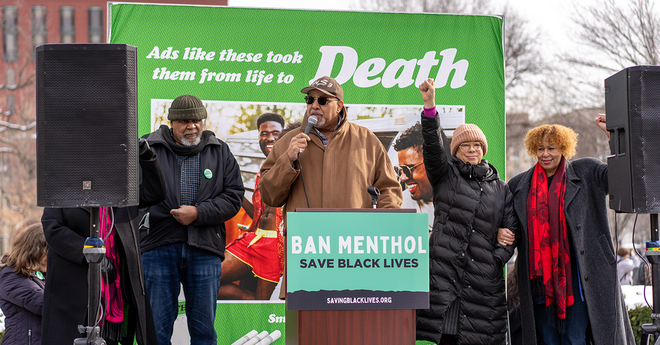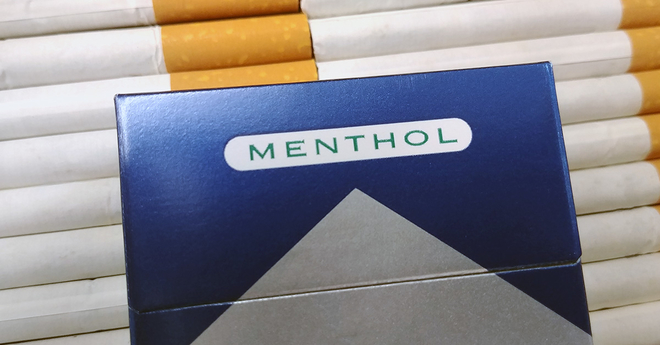Comprehensive review provides further proof that FDA should ban menthol cigarettes
A Truth Initiative® review of more than 80 studies on menthol tobacco products provides additional proof that the Food and Drug Administration should immediately ban the products to benefit public health.
In 2009, the federal government passed a national ban on flavored cigarettes, but exempted menthol cigarettes, which have a mint flavor that reduces the harshness of smoke and suppresses coughing. In the new study, published in BMC Public Health, researchers reviewed 82 studies in peer-reviewed journals and concluded that there is more than sufficient evidence to show that menthol cigarettes appeal more to young people, are harder to quit than regular cigarettes and should be banned to protect public health.
57%
Between 2008 and 2010, 57 percent of smokers ages 12 to 17 smoked menthol cigarettes
Highlights from the findings show:
- The use of menthol cigarettes is higher among youth than young adults and adults. Between 2008 and 2010, 57 percent of smokers ages 12 to 17 smoked menthol cigarettes, compared to 35 percent of smokers overall. That gap continued to widen in the years that followed. When researchers examined youth smokers who smoked menthol cigarettes between 2012 and 2014, they found a 4 percentage-point increase from 2008 to 2010.
- Significantly more middle school students smoke menthol cigarettes than high school students.
- Youth who recently started smoking are more likely to smoke menthol cigarettes. Additionally, among young smokers, there is a strong association between starting to smoke with menthol cigarettes and becoming regular smokers in the long term.
- Despite decreases in overall cigarette use, menthol use remained steady from 2004 to 2010 among those between 12 and 17 years old, and increased significantly for those between 18 and 25.
- Young people who smoke menthol cigarettes show higher levels of symptoms of nicotine dependence, such as reaching for cigarettes quicker after waking up in the morning and being more likely to suffer withdrawal after not smoking for a few hours.
- Menthol tobacco users are less successful at quitting than non-menthol smokers, even if they have tried to quit several times.
- Black smokers report the highest use of menthol cigarettes of smokers of any age, with nearly 80 percent of black smokers having smoked menthols. Previous research has shown that the tobacco industry has heavily targeted African-Americans with menthol marketing and that they face a larger burden of tobacco-related disease.
Truth Initiative has repeatedly called on the FDA to ban menthol cigarettes, a move that the findings strongly support. The FDA has yet to propose any regulation to remove menthol cigarettes from the market, and in 2017, four years after the FDA requested public comment for additional information to help make informed decisions about menthol, the agency announced that it would again request public comment on the role that menthol in tobacco products plays in attracting youth and in helping some smokers switch to potentially less harmful forms of nicotine delivery.
“The strength and consistency of the associations in these studies support that the removal of menthol from cigarettes is likely to reduce youth smoking initiation, improve smoking cessation outcomes in adult smokers, and, in turn, benefit public health,” researchers stated in the report.
More in traditional tobacco products
Want support quitting? Join EX Program
By clicking JOIN, you agree to the Terms, Text Message Terms and Privacy Policy.
Msg&Data rates may apply; msgs are automated.



